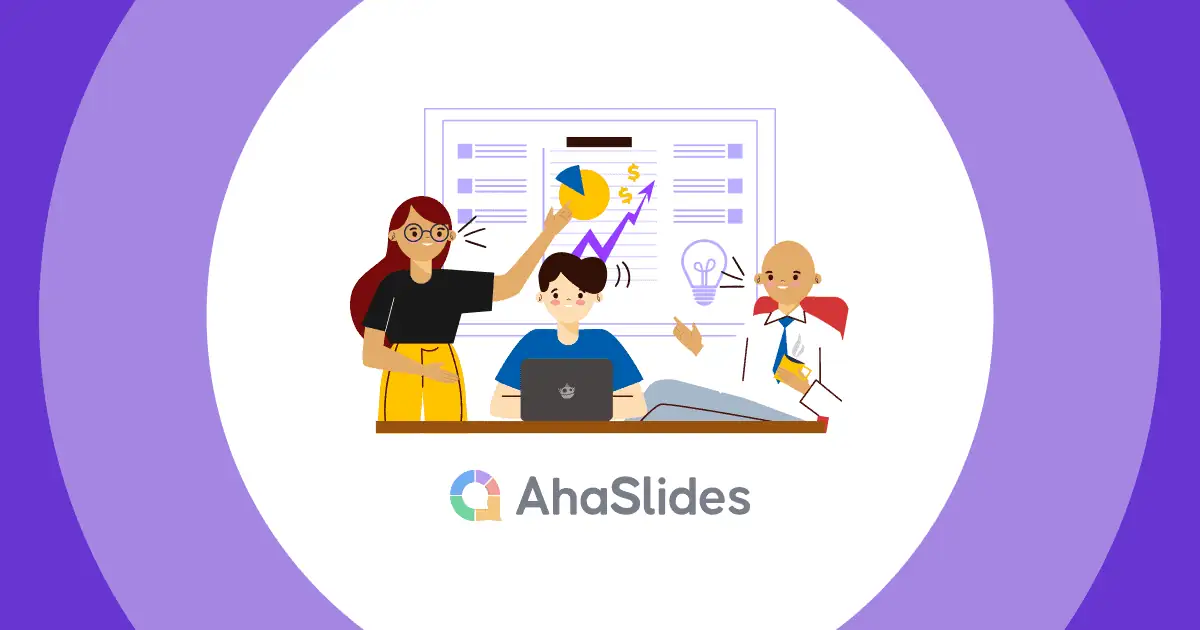Facilitators are like the conductors of the orchestra, orchestrating everything from content to interactions.
They think it, make it, and are the minds behind the magic who make sure employees level up their skills.
Curious about what these roles are about and what skills to look for in a trained facilitator?
Read on to get the lowdown on who brings the learning to life.
Table of Contents
- What is a Facilitator?
- What is The Difference Between Facilitated and Trained?
- Trained Facilitator Skills to Lead and Facilitate Team
- Why Trained Facilitators are Essentials for Businesses
- Key Takeaways
- Frequently Asked Questions
Tips for Better Engagement

Present in An Engaging and Meaningful way.
Forget linear presentation, engage your team with creative and interactive slides!
Get started for free
What is a Facilitator?
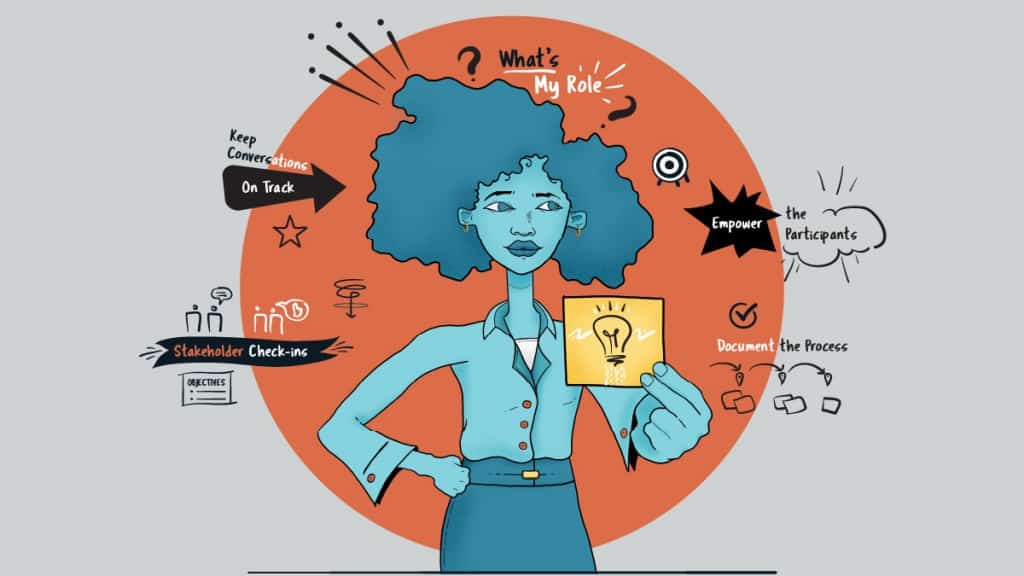
A trained facilitator is someone who has received a formal education, certification or extensive experience in professional facilitation techniques, group dynamics and adult learning theory.
Trained facilitators are the MVPs making sure every training session hits it out of the park. Their mission? Craft engaging content that keeps learners tuned in and delivers real value for the company.
Some of the key plays in their playbook include:
- Designing dynamite training lineups from start to finish
- Linking up with the subject slaying SMEs to develop dope docs
- Evaluating how effectively each session serves up skills
- Providing learners backup whenever they need help levelling up
Facilitators quarterback the whole show to guide organisations in taking their employees' abilities to the next level. With their clutch coaching, everyone gains the essential expertise to win big on the job.
Read more: 4 Essential Facilitator Skills for Successful Discussions
What is The Difference Between Facilitated and Trained?
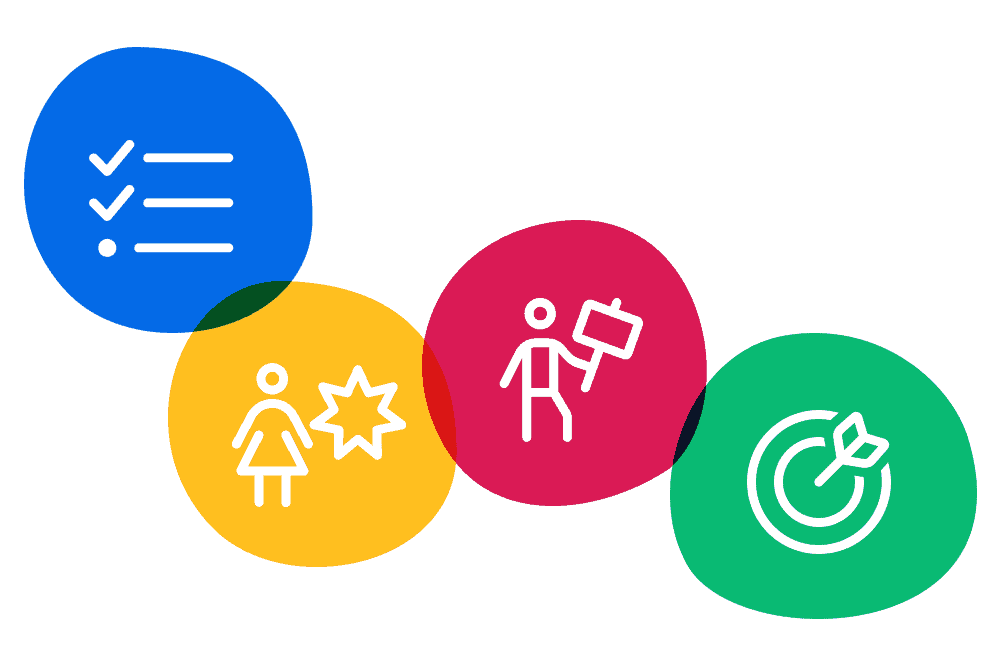
Some people may be confused about the role of a trainer and a facilitator. Here are the key differences:
| Trainers | Facilitators | |
| Role | responsible for delivering instructional content on a particular topic or subject area. | guides a group process and discussion but does not necessarily deliver content. |
| Focus | focuses more on transmitting knowledge, skills and competencies on a specific subject. | focuses on group participation, dynamics and consensus building. |
| Techniques | relies more on instructional methods like lectures, demonstrations and hands-on practice. | uses techniques like questioning, brainstorming and activities to surface ideas. |
| Goals | equips individuals with information to perform tasks or pass exams on a topic. | aims to help a group work through an issue together in an unbiased way. |
| Evaluation | evaluate individual learning outcomes through assessments. | assess group outcomes and participation levels. |
Trained Facilitator Skills to Lead and Facilitate Team
A trained facilitator should possess nuanced skills to bring the best out of their team. Let's find out what they are:
#1. Communication and Facilitation Skills

A trained facilitator must demonstrate excellent communication skills in order to effectively engage participants and achieve the objectives of any discussion or workshop.
They need to have the ability to actively listen without distraction to fully understand perspectives shared, while also responding with clarity and enthusiasm to boost involvement.
Facilitators should adopt a neutral, unbiased stance to make all attendees feel equally respected and heard.
It is important they think adaptively to adjust their style depending on the energy levels or emerging viewpoints in the group.
Sensitivity is also key to using appropriate language mindful of individual differences.
Strong conflict resolution talent is important to redirect any disagreements constructively so participants leave understanding different viewpoints.
Inclusiveness, welcoming introverted voices while focusing on extroverted voices, ensures full participation.
Equally, a facilitator must manage discussions efficiently yet leisurely to satisfy goals, summarise outcomes valuably, and above all, communicate through positive body language and tone to make every participant comfortable.
#2. Process Skills

An important element of a skilled facilitator is their proficiency with key process-related skills.
This involves thoroughly planning sessions by defining clear objectives and desired outcomes agreed upon with stakeholders.
The facilitator must also attend to logistical preparations such as ensuring the physical space accommodates needs and any technology functions properly.
A trained facilitator also uses engagement techniques that motivate involvement through activities, discussion prompts and small group work.
They can steer consensus-building when problem-solving challenging issues.
Skills like summarisation, managing time shifts and involving outliers demonstrate process navigation ability.
Finally, closure involves tying outcomes to objectives, documenting results, stating the next steps and gathering feedback for evaluation to gauge impact and areas for future skills refinement, continuously honing their process proficiency.
Motivate People to Join Discussions with AhaSlides
Use AhaSlides for activities, discussion prompts and small group work.
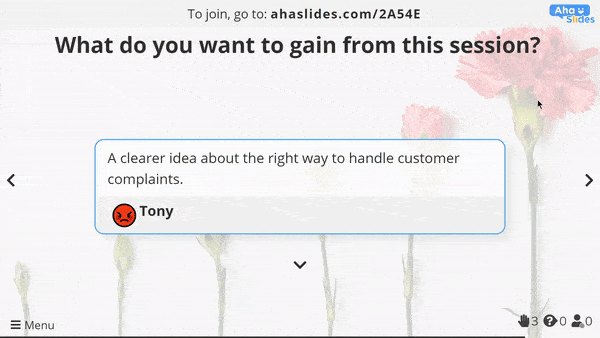
#3. Interpersonal Skills
A knowledgeable facilitator demonstrates approachability through an open and friendly demeanour that puts participants at ease.
They should show empathy for differing perspectives and exemplify an understanding of how experiences and viewpoints shape identities.
High emotional intelligence underpins a facilitator's ability to effectively navigate group dynamics and tensions through both awareness and tactful addressing.
It's also essential to foster inclusiveness where all voices, especially quieter contributions, feel equally valued.
Patience, adequate reflection time without rushing, and treating all respectfully irrespective of views should be present to build trust.
#4. Technology Skills
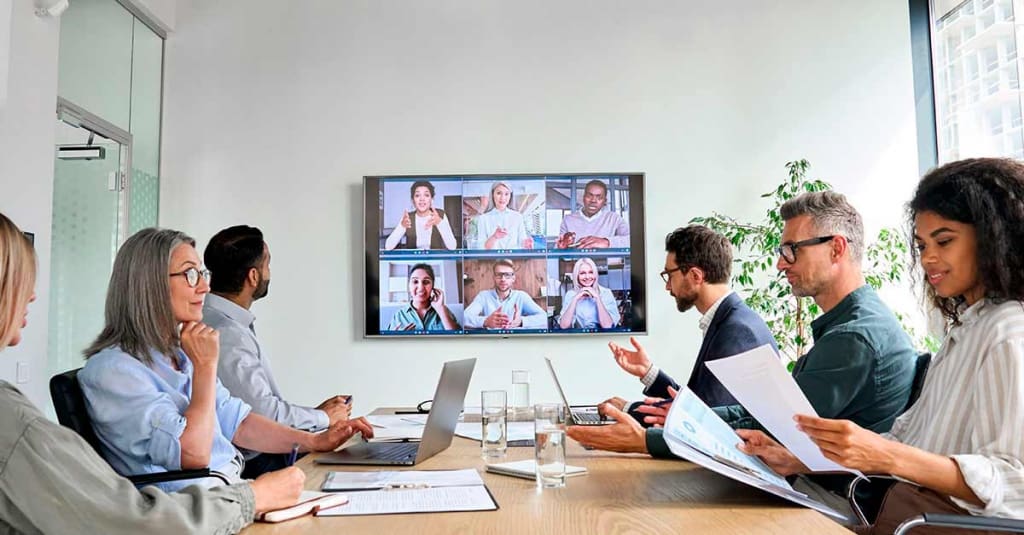
A skilled facilitator excels at incorporating appropriate technologies to enhance learning experiences.
They possess fundamental proficiency with common audio-visual equipment like projectors and screens to logically set up physical environments.
Competence across popular online meeting and presentation platforms such as Zoom, Teams and AhaSlides allows leverage of features to foster interaction through screen sharing, annotations, breakout groups and other dynamic content such as polls and Q&A sections.
A trained facilitator also needs to create well-structured, visually engaging slide decks and handouts. They should clearly state technology roles and guide the participants through each of them easily to facilitate smooth adoption.
#5. Qualifications
A highly qualified facilitator should offer validated expertise through relevant education, certifications and demonstrated professional experience, such as:
- Education: Minimum of a bachelor's degree, often in fields like education, psychology, or learning/training.
- Certification: Certified as a Professional Facilitator (CPF) by the International Association of Facilitators (IAF) or similar body.
- Experience: 3-5 years in a related role conducting workshops, meetings, and training programs.
- Facilitation Skills Training: Formal coursework and strong expertise in areas like group dynamics, collaborative methods, and inclusive processes.
- References: Verifiable history of successful facilitation outcomes from past clients.
Why Trained Facilitators are Essentials for Businesses

Training facilitators play a vital role for companies because they don't just deliver content - they drive meaningful learning outcomes through their expertise.
As learning and development specialists, facilitators are adept at crafting engaging curriculums tailored to business needs and learners' various styles.
They keep training relevant by continually evaluating needs and updating materials based on industry shifts.
More importantly, facilitators maximise retention by fostering interactive discussions and participation versus passive delivery. This translates learning into on-the-job capabilities and performance gains.
Their rigorous assessment of knowledge transfer ensures training delivers a strong ROI.
By guiding continuous skill-building as a strategic priority, facilitators empower employees to reach their full potential and support business objectives far into the future.
It is this guiding hand that transforms training investments into truly impactful development supporting organisational success.
Key Takeaways
Trained facilitators understand how to structure collaborative activities and discussions to maximise participation and outcomes based on group needs.
Strong communication, interpersonal and technology skills are needed to effectively lead groups both in-person and virtually.
When utilised by organisations, trained facilitators help unlock teams’ collaborative potential to solve problems and gain valuable job skills.
Electrify every crowd with Ahaslides!
With interactive polls and surveys, you can get the convo flowing and gauge what people really think. Check out AhaSlides Public Template Library.
Frequently Asked Questions
How do you become a trained facilitator?
The journey to becoming a trained facilitator begins by obtaining a sound educational foundation in a relevant field like education, organisational development, or instructional design. Specialised facilitation skills training programming is undertaken to develop expertise in collaborative techniques, group processes, and facilitating different personalities and problem-solving orientations. Continuous learning, skill-building, and facilitation experience are gained through industry events and volunteering whenever possible. As one's portfolio builds with facilitation projects and references from clients, additional certifications may be considered in targeted fields like change management.
What is training facilitation?
Training facilitation refers to the practice of leading and managing learning experiences or training programs in order to develop job skills and competencies in participants.
What is training facilitation?
Training facilitation refers to the practice of facilitating or guiding a training session or event in an impartial manner. The goal is to make the most of limited time through impartial shepherding of discussions and activities to achieve optimal learning outcomes for the participants.










